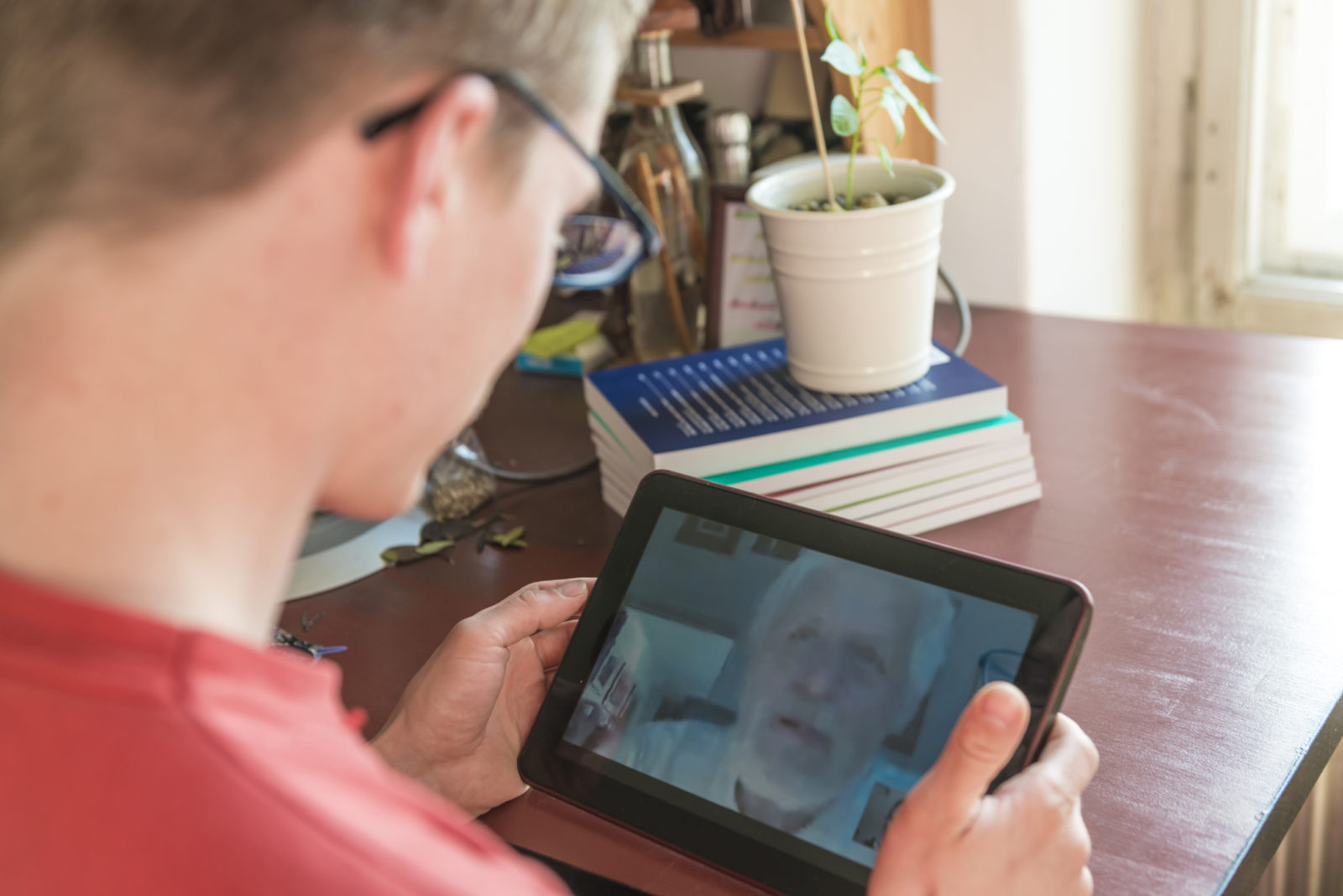Long-Distance Caregiving

There are few things more frustrating in life than feeling responsible for someone’s welfare when they live far away for you. Yet, more and more adult children find themselves in this exact situation. Because we live in a much more mobile society than previous generations, families are often scattered from one end of the country to the other. So, when a parent or grandparent needs care and support, or when a care crisis occurs, families come face to face with the challenge of long-distance caregiving.
Here are steps to take to understand your loved one’s needs, and to work with family, friends and professionals to be sure those needs are met.
Assess your situation
The first step to being an effective caregiver is to be well-informed. During your next visit, pay attention to your loved ones’ health condition, the condition of their home, their appearance and grooming. Is mail piled up on the table? Have bills been paid? Is there nutritious food in the kitchen? If you have concerns, speak with your loved one’s healthcare provider, financial advisor and other professionals. Talk to friends and neighbors—and, most important, to your loved one. Ask lots of questions. Make notes to refer to later.
Make a plan
Once you have sense of your loved one’s situation and needs, it’s time to determine what your role can and should be. Make sure the right people are involved in the plan—other family, and professionals who can offer input. Remember that unless your loved one is completely incapacitated, he or she must be centrally involved in developing the plan. You are trying to help Mom or Dad arrange their life, not arrange it for them. Your goal is to support your family member’s maximum level of independence, self-esteem and dignity.
Enlist the help of a professional caregiver
A home health or private duty care provider can help with ensuring your loved one’s safety and well-being. A home health care professional can provide a variety of medical services including wound care, physical therapy, disease management and stroke rehabilitation as well as assess the current living situation and provide recommendations for make the home safer. A private duty caregiver can help with dressing and bathing, meal planning and preparation, light housekeeping, escorting clients to medical appointments and social events and even simple companionship and conversation, which is essential to a fulfilling life. Blize provides a wide variety of services that can help provide peace of mind to the long-distance caregiver.
Keep In Touch
Nothing takes the place of a visit. But between visits, here are five great ways to keep in touch with your loved one:
- Call often, and encourage your loved one to call you
- Set your loved one up with a simple email program
- Use a webcam or Skype for “virtual visits”
- Help your loved one create a Facebook page, or set up a family blog
- Remember that cards, letters and photos never go out of style
![Blize Healthcare [logo]](https://www.blizecare.com/wp-content/themes/blize/images/logoblog_1.jpg)
![Blize Healthcare [logo]](https://www.blizecare.com/wp-content/themes/blize/images/logoblog_2.jpg)
![Blize Healthcare [logo]](https://www.blizecare.com/wp-content/themes/blize/images/logoblog_3.jpg)